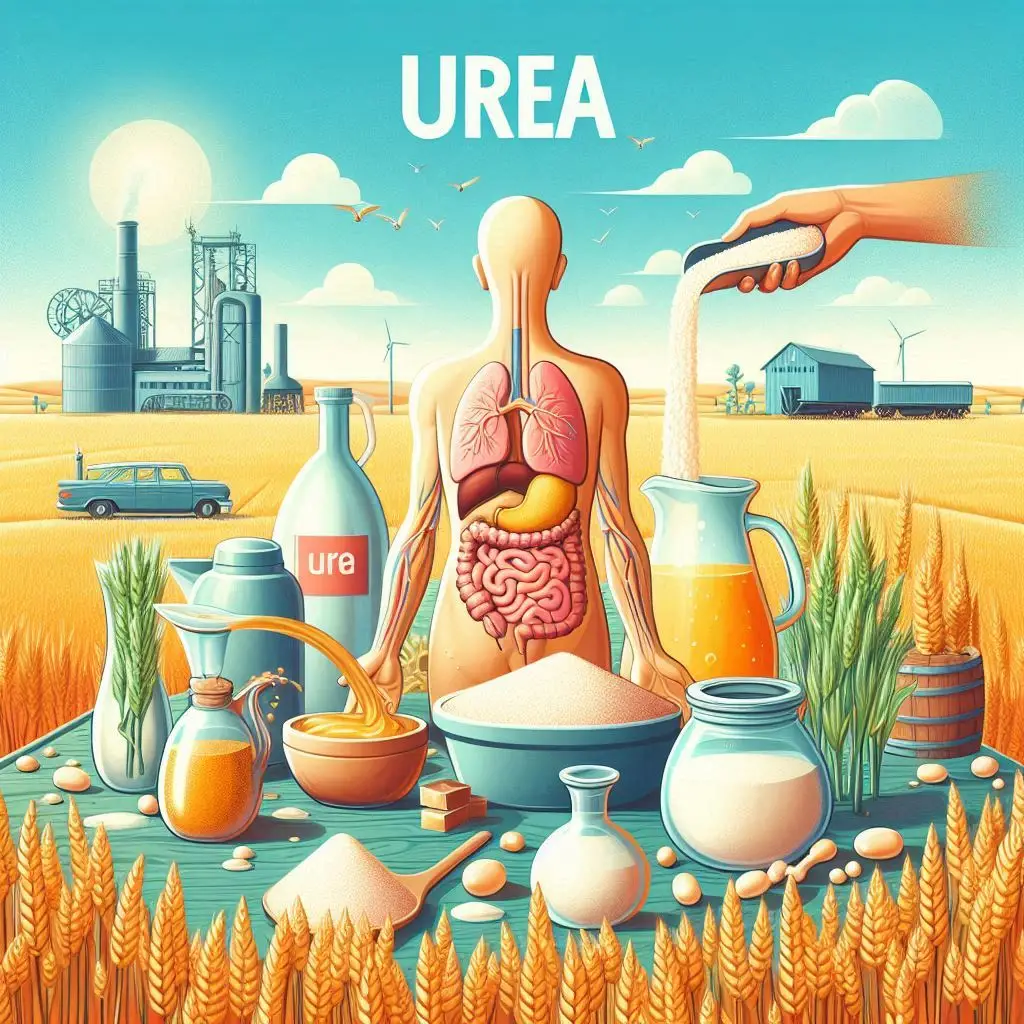
What is Urea Used For in Farming, the Body, and Skin Care?
Introduction
Urea is a versatile compound that plays a critical role in various fields, from agriculture to human health and skincare. Known primarily as a fertilizer, urea is a source of nitrogen, essential for plant growth. However, its importance goes beyond farming; it also has significant functions in the human body and is widely used in skincare. This article explores how urea benefits farming, the body, and skincare, highlighting its many applications and why it’s such a crucial substance.
What is Urea Used For in Farming?
Urea is one of the most widely used fertilizers in agriculture, prized for its high nitrogen content. Nitrogen is a vital nutrient for plants, promoting their growth and improving crop yields. Urea’s role in farming can be understood through the following key points:
Nitrogen Source: Urea is an excellent source of nitrogen, a crucial element in the production of amino acids, proteins, and chlorophyll. These are essential for plant growth, photosynthesis, and overall productivity.
Versatility: Urea is used for a wide range of crops, from cereals and vegetables to fruits and cash crops. Its high nitrogen content makes it effective for both foliar application and soil incorporation, giving farmers flexibility in how they use it.
Efficiency: Known for its nutrient efficiency, urea ensures that a large proportion of nitrogen is absorbed by plants. It is also cost-effective compared to other nitrogen fertilizers, making it an affordable choice for farmers worldwide.
Solubility: Urea is highly soluble in water, allowing for easy application through irrigation systems. This solubility ensures plants quickly access the nitrogen, promoting faster growth and healthier crops.
Storage and Handling: Urea is stable and easy to store, making it convenient for long-term use. Its granular form prevents caking, ensuring minimal waste during storage and transport.
Environmental Impact: Although urea is an effective fertilizer, improper use can lead to environmental problems such as nitrogen leaching and ammonia volatilization. To mitigate these issues, proper application techniques and timing are crucial.
What is Urea Used for in the Body?
Urea is also a vital component in the human body, with several essential functions, primarily related to waste removal and water balance. Here’s how urea benefits bodily functions:
Nitrogen Excretion: Urea is produced in the liver as part of the urea cycle, which detoxifies ammonia (a byproduct of protein metabolism). It combines ammonia with carbon dioxide to form urea, a less toxic substance that is then excreted in the urine.
Kidney Function: The kidneys filter urea from the bloodstream and excrete it in urine. The level of urea in the blood serves as an important indicator of kidney function, with elevated levels often indicating kidney disease.
Osmoregulation: Urea plays a crucial role in maintaining the body’s water balance by influencing the movement of water across cell membranes. It helps regulate the concentration of electrolytes and fluids, ensuring that cells function optimally.
Thermoregulation: Urea also assists in thermoregulation by controlling perspiration. As sweat evaporates, it helps to regulate the body’s temperature, ensuring that we don’t overheat.
Skin Moisturization: Urea is widely known for its ability to hydrate the skin. It attracts and retains moisture, making it an effective moisturizer for dry and rough skin. Urea helps improve skin hydration by strengthening the skin’s natural barrier and preventing moisture loss.
What is Urea Used for in Skin Care?
Urea is commonly used in skincare products due to its moisturizing, exfoliating, and soothing properties. Below are the main benefits of urea in skincare:
Moisturization: Urea is a powerful humectant that draws moisture from the environment and helps the skin retain it. By increasing the water content of the skin, urea softens and hydrates dry, rough, and flaky skin, promoting a smooth and healthy complexion.
Exfoliation: Urea has mild keratolytic properties, which means it helps to exfoliate the outer layer of dead skin cells. This action removes rough, dry skin, revealing a smoother surface. It is particularly useful in treating dry, cracked skin, as it accelerates cell turnover.
Skin Barrier Function: Urea strengthens the skin’s natural barrier by maintaining an optimal pH balance. A healthy skin barrier helps protect against external irritants, reduces water loss, and improves overall skin health.
Anti-itch and Anti-inflammatory: Urea has soothing properties that help calm itching and inflammation associated with conditions like eczema, psoriasis, and dermatitis. It alleviates discomfort, helps heal irritated skin, and restores moisture.
Callus and Corn Treatment: Urea is effective in treating calluses and corns, particularly on the feet. It softens hardened skin, making it easier to remove rough patches and reducing discomfort caused by these skin conditions.
Compatibility: Urea is generally well-tolerated by most skin types and is non-irritating. It can be incorporated into a variety of skincare formulations, including lotions, creams, and foot care products.
Conclusion
Urea is a multifaceted compound that plays a vital role in farming, the human body, and skincare. In agriculture, it serves as an essential source of nitrogen, boosting crop growth and improving yields. In the human body, urea is critical for nitrogen excretion, kidney function, and thermoregulation. When used in skincare, urea provides moisturizing, exfoliating, and anti-inflammatory benefits. Understanding urea's diverse uses highlights its importance across various industries, making it a crucial substance for agriculture, health, and personal care. By using urea properly in each of these fields, its full potential can be harnessed while minimizing any negative impact.

